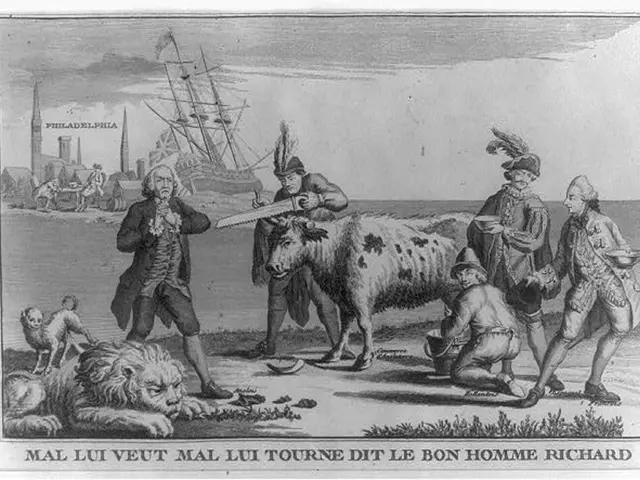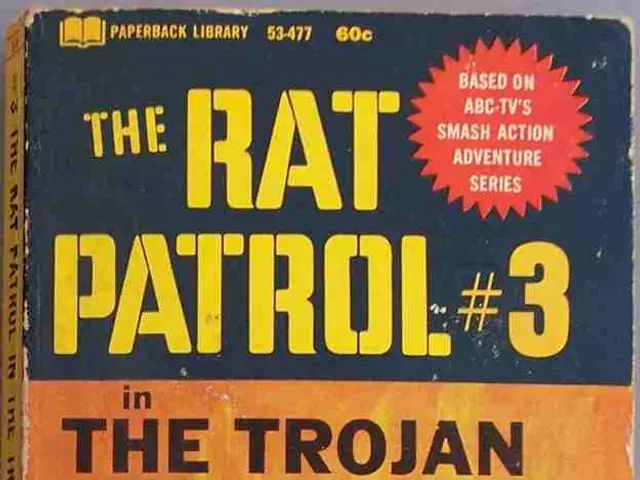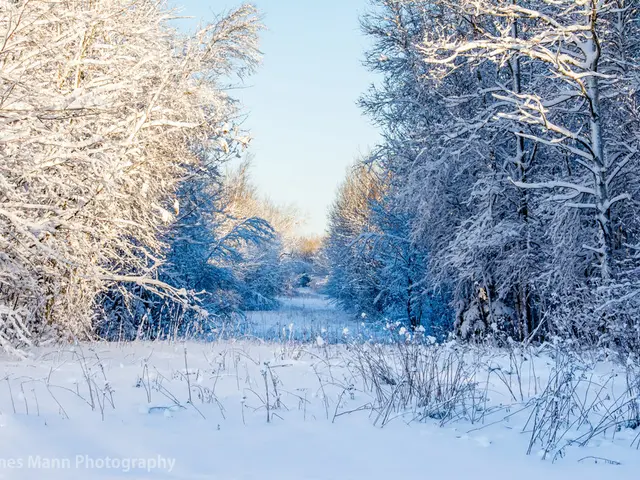Quebec and Ottawa to abandon plans for nuclear waste storage at Chalk River facility
Chalk River Nuclear Waste Burial Project Faces Sustained Opposition from Indigenous Community and Allies
In a united front, the Anichinabé community of Kebaowek, situated on ancestral lands straddling Quebec and Ontario, has implored the governments of Quebec, led by François Legault, and the federal government, helmed by Mark Carney, to reject the proposed Chalk River nuclear waste burial project. To emphasize their stance, community leaders, environmental groups, local municipalities, and elected officials, including Manon Massé of Quebec Solidaire, gathered on Monday in Montreal to denounce the plan.
The fight against the project spans over a decade without any definitive action from either Quebec or Ottawa, as lamented by Kebaowek's Chief, Lance Haymond. Appealing for reconciliation, he urged Legault and Carney to translate their words into actions, stating, "The time for empty promises is over—we need action."
Canadian Nuclear Laboratories (CNL), a private sector consortium overseeing federal nuclear sites, plans to store over a million cubic meters of low-intensity radioactive waste in the chosen site near the Ottawa River. The impending project raises environmental concerns for the community, as they fear potential harm to local waterways, wildlife, flora, and culture.
To avert environmental catastrophe and safeguard their ancestral lands, Haymond advocates for the evaluation of alternative sites for nuclear waste burial. However, the proposed site sits only a kilometer from the Ottawa River, which also serves as the border dividing Ontario and Quebec.
A perceived lack of political will from the two governments characterizes the ongoing project, with no official disavowal from Quebec or Ottawa since repeated requests in 2015. Quebec Solidarity Party elected official, Manon Massé, identified this apparent stalemate, citing a clear and obvious lack of political will for not publicly condemning the Chalk River project. She also issued a personal letter to Prime Minister Legault in February, demanding action from Quebec to reject the nuclear waste plan.
Minister of the Environment Benoit Charette and Minister Responsible for Relations with First Nations and Inuit Ian Lafrenière promised to remain vigilant regarding future CNL activities. However, the installation of the waste management center in Chalk River falls under federal jurisdiction and does not require an environmental permit from Quebec, according to the ministers.
The "Minister of Energy and Natural Resources," Tim Hodgson, has no role in the permitting process on the federal side, as indicated by Hodgson's office. Thus, intervening with the Canadian Nuclear Safety Commission (CNSC), which is responsible for analyzing the project, would be inappropriate, according to the minister.
On May 26, 2025, the Kebaowek First Nation and allies held a press conference, entreating the Federal Court to honor recent decisions that have favored the Kebaowek community. These decisions, which have been immediately appealed by the CNSC, acknowledge that the community was inadequately consulted concerning the choice of site. Expressing frustration, Haymond noted that despite twice winning in court, the CNL still refused to listen to the community's concerns.
As citizens around Ottawa, Gatineau, and Montreal oppose the nuclear waste burial project in Chalk River, fearing possible contamination of the Ottawa River, the Chalk River project has drawn widespread attention and resistance from indigenous and non-indigenous groups alike.
The ongoing struggle against the Chalk River nuclear waste burial project has attracted general news coverage, with multiple groups demanding science-based environmental considerations. As community leaders, politicians, and environmental groups unite, they emphasize the potential impacts on the environment, waterways, wildlife, flora, and cultural heritage.
The fight for environmental-science-driven decision-making extends beyond the Indigenous community, encompassing a diverse array of allies who express concerns over the lack of political will to protect the general-news landscape from potential environmental catastrophe.








